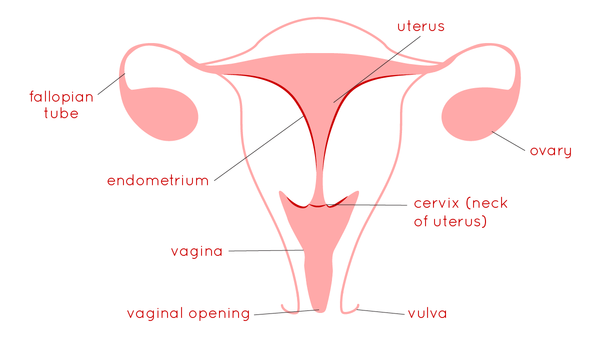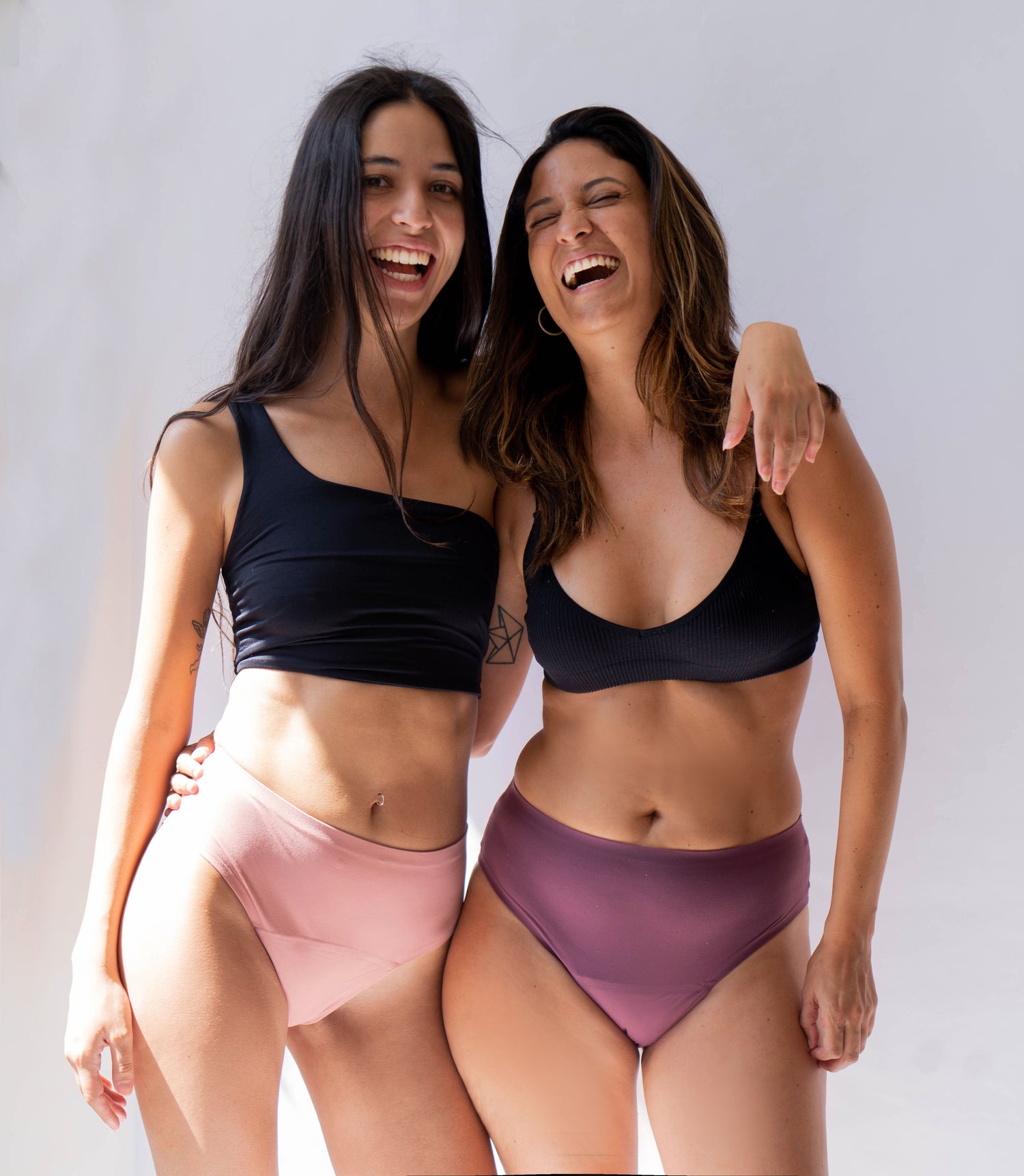This article is written by medical professional Dr. Alice Byram, whom you can read more about at the end of the article.
Let’s Talk About Periods!
We have answers for parents about their teens' first period. Sharing information and advice is the best way to understand your first period and get rid of any fears you may have! No question is too stupid and if the first person you ask doesn’t know, ask another one. I hope my medical experience helps you to understand this process your body is going through, and solve all your questions on getting your first period.
Your First Period: What You Need To Know
Have you just started your period? Or want to know what to expect? Your period is part of growing up, it is nothing to worry about.
Your period is the elimination of your uterus wall lining which comes out of your vagina as blood and mucous to make up your menstrual flow. It is part of a natural process which prepares your body for pregnancy. Now that your body is changing you can get pregnant if you have sex. You can even get pregnant just before your first period.

Your period happens once a month, and usually lasts between 2-7 days, but it may take a few months for your period to be regular and predictable. The first few may be light and irregular. You may find it useful to keep track of your period every month, to see when it is due and when it arrives. You can use an easy period tracking app.
First period signs: Signs That You Are Close To Getting Your First Period
Around the time of your first period, your body shape will change. Your hips and breasts will get bigger and you will see hair growing in new places, under your arms and around your vulva. These are all normal changes and part of growing up. This time of your life is called puberty.
Your First Questions
Your period does not have to get in the way of your life. It is normal and natural, and nothing to be embarrassed or worried about. Here are some of the most common questions:
When will I get my first period?
Many teens get their first period between ages 12-14, but it can start earlier or later. It can arrive as early as your 8th birthday or you may have to wait until you are 15. This is still considered to be normal. Your first period is called the menarche.
What to do when I get my first period?
Don’t worry! Tell a parent, friend or teacher. Adults or older siblings can help you to get the right information and products that you need. But I’d encourage you to research all different products that exist in the market, and see if they resonate with you. You might have heard about pads and tampons, but you might also like to know that there are different options available. Menstrual cups, for example, retain 4-5 more blood than tampons and pads, don’t dry out your vagina, and are reusable, representing a more eco friendly and economic solution. To learn more about menstrual cups, please read our Ruby Cup Beginners Guide.
How long does my period last?
Periods usually last between 2 - 7 days but each body is different. If your period often lasts longer than 7 days, talk to a parent or a doctor.
How much blood will I lose?
It may look like a lot, but it is only around 3-5 tablespoons. This blood is actually a mix of blood and uterus or womb lining. You may find blood clots in your menstrual cup or other menstrual products but it is quite common and no reason to panic.
Will anyone know I am on my period?
Unless you decide to tell them, it is very unlikely anybody else will know that you are menstruating. Choosing the right menstrual product, such as a menstrual cup, will help you feel more confident. Menstrual cups can be worn for up to 8 hours, so you may have one less thing to worry about. However, it is a good idea to ask a family or a friend for help if you feel worried. Never feel ashamed of your period.
Which product should I use?
You have a choice of products, take your time finding the right one. We explain more about the product options below.
Can I go swimming or play sports?
Yes! Some menstrual products let you exercise, swim and play sports as usual. Menstrual cups are one of the most popular among active people with periods. Here are some good reasons you should exercise during your period.
How To Manage Your Period
There are different menstrual products available. Find the right solution for you, and take time to practice until you feel comfortable and confident. Always wash your hands before and after changing your period product.
Menstrual Cups
Menstrual cups are small cups that are inserted into your vagina, like tampons. They collect your flow and can be worn for up to 8 hours. They can be used from someone's first period, meaning that teenagers can use menstrual cups too. They are made of medical grade silicone which is very safe for your body, are washable and reusable - so they are good for the environment too! Check our Beginner’s Guide to find out more or order a Ruby Cup.
Sanitary Pads
Pads or towels are worn in your underwear and stick to hold in place. They absorb your menstrual flow as it leaves your body. Change your pad every 4-6 hours and dispose of it in the rubbish bin. Please do not flush pads and tampons down the toilet as they will destroy your plumbing system and pollute the sea and beaches.
Tampons
Tampons are made of a cotton material and are carefully inserted into your vagina where they absorb your menstrual blood, some people feel more dryness from using tampons, and so they opt for menstrual cups instead. They can have a paper or plastic applicator which helps with the insertion or be pushed in with your finger. They must be removed and changed every 4-6 hours and disposed of in the rubbish. Please do not flush pads and tampons down the toilet as they will destroy your plumbing system and pollute the sea and beaches.
How parents should deal with the first period
Sharing knowledge and experience is important to help your child to feel comfortable and confident about the changes that are happening to their body.
1. Reassure
Preparing them with correct and updated information before their first period arrives can prevent worry. Let them know they are normal and that they can still enjoy their childhood. Just because their period has arrived, they do not need to be rushed into becoming an adult. If you feel uncomfortable about talking about it then use a book or leaflet to get the conversation going.
2. Share
Talk from experience. Let your child know that all menstruating teenagers go through it, and if you didn't go through it, find someone you trust who did. Explain which menstrual health products are available, how to use them and how to make them feel comfortable. If you need more information about newer products on the market or just a reminder, use a trusted medically reviewed website to get the information.
3. Know the facts
Have a look at our additional pages for information about everything from period problems to Menstrual Cycle and Get Started With a Menstrual Cup. This can be a good way of making sure that the information you share is correct. It is better for you to offer the correct information rather than unintentionally pass on old wives tales which aren’t scientifically true. You can email or message the link if this is easier.

_________________________________
Written by Dr Alice Byram Bsc Med & Surg UMA MA Hons MML Cantab
Dr Alice Byram was born in England to a French-British family. Following on from a degree in Spanish from the University of Cambridge, she went to Spain to study medicine. On her return to the UK, she worked in Emergency Medicine for several years before recently returning to Barcelona.
1Klein DA, Emerick JE, Sylvester JE, Vogt KS. Disorders of Puberty: An Approach to Diagnosis and Management. Am Fam Physician. 2017;96(9):590–599.
 Your Account
Einloggen
Your Account
Einloggen
 Basket
Basket



